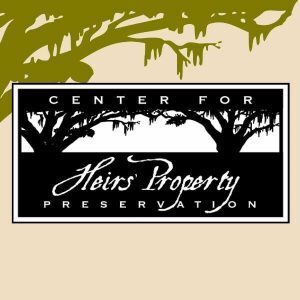News
New Mississippi Initiative Will Combat Leading Cause of Involuntary Land Loss Among Black Families
The Center for Heirs’ Property Preservation and the Mississippi Center for Justice today announced the Mobile Basin Heirs’ Property Support Initiative, a two year program designed to help historically underserved families in Mississippi protect and keep their forestland; build generational wealth; and promote productive, sustainably managed forests. With support from World Wildlife Fund (WWF) and Kimberly-Clark, the new initiative will provide a combination of legal services, information, and assistance accessing financial resources to help Mississippians resolve land title issues that disproportionately affect Black families and often lead to loss of land, wealth, and forest resources.
Heirs’ property is land passed down informally from generation to generation, often because landowners died without a will. In the absence of a will, the land is considered jointly owned by all heirs, split between multiple people regardless of whether they live on the land, pay the taxes, or have ever set foot on it. This fractured land leaves owners vulnerable to developers and timber harvesters, tax sales, and forced partition sales. Owners are faced with the decision to either give up their land or go through the complex and costly legal process of resolving title issues. In Mississippi, this also contributes to an increasing rate of forest loss, compromising the region’s important freshwater habitats and drinking water supply.
“Families and individual landowners with title issues clouded by undetermined heirs or absent heirs can result in loss of land held for generations through tax sales, court-ordered partition sales, or even a ‘taking’ of the land by adverse possession,” said Mississippi Center for Justice President and CEO Vangela M. Wade. “These harmful effects—which have persisted for decades—have been particularly acute for families of color and low-income families in Mississippi. It is currently estimated that heirs’ property accounts for 1.6 million acres valued at $6.6 billion across the southern Black Belt.”
The new initiative is based on a successful model developed by the Center for Heirs’ Property Preservation™ in South Carolina. This model has helped South Carolina families resolve more than 275 titles, building family and community wealth and ecological restoration in marginalized communities.
“We are delighted to entrust our heirs’ property resolution knowledge and expertise to a well established public interest law firm to address the complex problem of land loss by increasing access to the tools and resources these landowners need to resolve title issues and develop working landscapes,” said Jennie L. Stephens, chief executive officer, the Center for Heirs’ Property Preservation™. “This partnership will help build and sustain a landowner movement that has the power to unleash the cultural and natural resources of land in marginalized communities toward family wealth creation and to ecological restoration.”
The initiative will also provide landowners with forestry education and access to additional funding for forest conservation and responsible forest management. This support can help families make income from their lands while protecting wildlife habitat and water sources.
“There is no sustainable future without addressing racial and social injustice,” said Kerry Cesareo, senior vice president for forests at WWF. “Only by preventing the exploitation of families and their land can we prevent forest fragmentation and loss in this country and mitigate the worst effects of climate change. Forests are a source of health and wealth, but the burdens and benefits of caring for forests have not been shared fairly. We need to do everything we can to address injustice and support people who have helped all of us by caring for forestlands for generations and who are themselves more likely to bear the brunt of nature loss and climate impacts.”
The initiative will be piloted over two years with property owners across the Mobile Bay watershed. In addition to providing direct assistance to Mississippi’s underserved landowners, the program’s goals include raising broader awareness about the benefits to both people and nature that can come from removing barriers for historically marginalized communities to secure land rights in the southern United States and beyond.
“Southern U.S. forests that Kimberly-Clark relies on to make our essential products are being lost to unsustainable development at an increasing rate, and heirs’ property is particularly vulnerable to that trend,” said Lisa Morden, vice president of safety, sustainability & occupational health at Kimberly-Clark. “Helping heirs’ property owners secure clear title to their ancestral land enables them to protect, care for, and benefit from that land, and we are honored to support the Center for Heirs’ Property Preservation, the Mississippi Center for Justice, and WWF in advancing this important work.”
Morden added: “We know the issue of insecure land tenure and its links to forest loss and degradation is not unique to the U.S. southeast. As the world continues to address the climate and biodiversity crises, we must also look to support the land rights of Indigenous and other marginalized communities who steward many of the world’s most carbon- and biodiversity-rich forests. To that end, this initiative supports our ambition to improve the lives and well-being of 1 billion people in underserved communities around the globe by 2030, with the smallest environmental footprint—and is part of how we deliver our purpose of better care for a better world.”

























